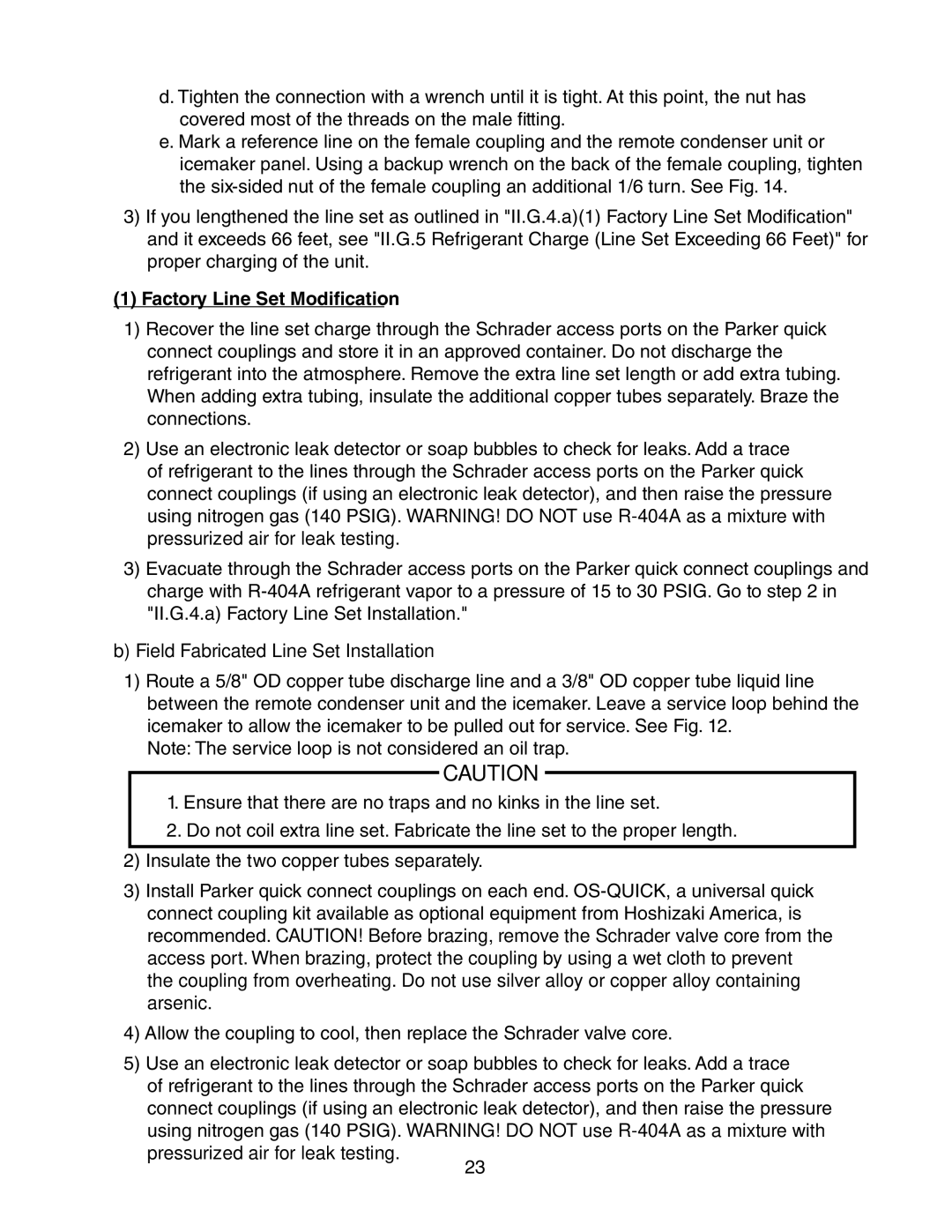KM-1900SWH/3, KM-1900SAH/3, KM-1900SRH/3 specifications
The Hoshizaki KM-1900 series, comprising the KM-1900SAH/3, KM-1900SWH/3, and KM-1900SRH/3 models, is recognized in the commercial ice-making industry for its exceptional performance and reliability. These machines are engineered for high efficiency, ensuring that businesses can meet their ice needs without compromising on quality or output.One of the standout features of the KM-1900 series is its impressive ice production capability. With a production capacity of up to 1900 pounds of ice per day, these machines are designed to cater to high-demand environments such as restaurants, bars, and hotels. The energy-efficient operation of the KM-1900 series not only helps businesses save on electricity costs but also contributes to environmental sustainability, an increasing concern in today’s world.
The machines incorporate a sophisticated air-cooled condenser that aids in maintaining optimal ice production even in warmer conditions. This feature ensures a consistent performance throughout the year, regardless of external temperature fluctuations. Additionally, the KM-1900 models are equipped with a self-cleaning cycle, which simplifies maintenance and extends the longevity of the equipment. This automatic cleaning function helps reduce mineral buildup, thereby guaranteeing the ice’s purity and clarity.
In terms of design, the KM-1900 series showcases a durable stainless-steel exterior, which is both aesthetically pleasing and resistant to corrosion. The sleek design allows for easy integration into any commercial setting. The removable front panels also contribute to easier access for maintenance and service, minimizing downtime.
A significant technological advancement featured in this series is the unique “Kold-Dry” technology, which enhances the freezing process and ensures that the ice produced is harder and lasts longer. This feature is especially beneficial for businesses that require ice to stay intact for extended periods, such as seafood markets or catering services.
Furthermore, the KM-1900SAH/3, KM-1900SWH/3, and KM-1900SRH/3 models come with various ice types. The KM-1900SAH/3 produces traditional cubed ice suitable for drinks, while the KM-1900SWH/3 offers flake ice ideal for perishables. The KM-1900SRH/3 specializes in producing nugget ice, a favorite among beverage enthusiasts.
In summary, the Hoshizaki KM-1900 series stands out for its robust performance, innovative features, energy efficiency, and user-friendly design, making it an ideal choice for any commercial ice-making application.

